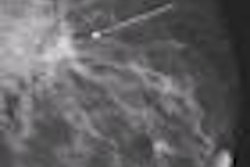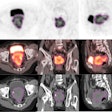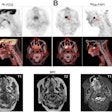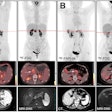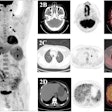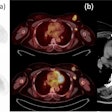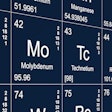While the majority of breast cancer patients who undergo breast conservation surgery also receive radiation therapy treatment, this isn't the case for patients who have a mastectomy, even when they would clinically benefit from it, according to a study published online March 29 in the Journal of Clinical Oncology.
The level of the breast surgeon's involvement in recommending radiation therapy is a decisive factor in whether patients receive it, according to a study of more than 2,000 women published by principal investigator Dr. Reshma Jagsi, Ph.D., and colleagues from the University of Michigan Comprehensive Cancer Center in Ann Arbor.
The researchers surveyed a population-based sample of patients identified in the Los Angeles County Cancer Surveillance Program and the Metropolitan Detroit Cancer Surveillance System registries as having received treatment for nonmetastatic breast cancer between July 2005 and February 2007.
All patients had been diagnosed with stage 0 to stage III primary ductal carcinoma in situ or invasive breast cancer and ranged in age from 21 to 79 years. The sample included approximately 30% of all eligible Caucasian women and approximately 70% of all eligible African-American and Latina patients.
A total of 2,260 patients responded to a mailed survey out of 3,133 enrolled in the study. The questionnaire asked patients if they received radiation therapy, the level their concern about receiving treatment that might include radiation, and the level of participation by their surgeon with respect to this decision.
Among 904 patients undergoing breast conservation surgery with strong indications for radiation therapy, 95.4% received the treatment, according to Jagsi and colleagues. So did 80% of the patients with weaker indications for treatment.
By comparison, only 77.6% of the 135 mastectomy patients diagnosed with node-positive disease and other strong indications underwent radiation therapy, and 47.5% of the 164 patients with weaker indications received radiation therapy.
The authors determined that receipt of radiation therapy was strongly correlated with patient preferences and surgeon interaction. Overall, more than half of the total number of respondents reported that their surgeons were highly involved in the recommendation for radiation therapy. When surgeons became involved, 86.5% had the treatment, compared with 74.7% who reported that their surgeons were less involved.
When surgeon involvement was high, 90% of mastectomy patients for whom radiation therapy was appropriate received the treatment. The majority of mastectomy patients who did not receive radiation therapy reported that their surgeon and oncologist either did not recommend the treatment or did not discuss it at all with them.
The risk of cancer recurrence for the high-risk group of mastectomy patients can exceed 30%, which can be reduced by two-thirds if patients have radiation treatment. The authors expressed concern about the rate of undertreatment in their study, and they encouraged surgeons to become more involved in recommending radiation therapy when clinically merited.
By Cynthia E. Keen
AuntMinnie.com staff writer
March 30, 2010
Related Reading
Women aren't told about postmastectomy radiation therapy, study shows, February 16, 2009
Postmastectomy nodal radiation unnecessary for node-negative breast cancer, September 23, 2008
Copyright © 2010 AuntMinnie.com






